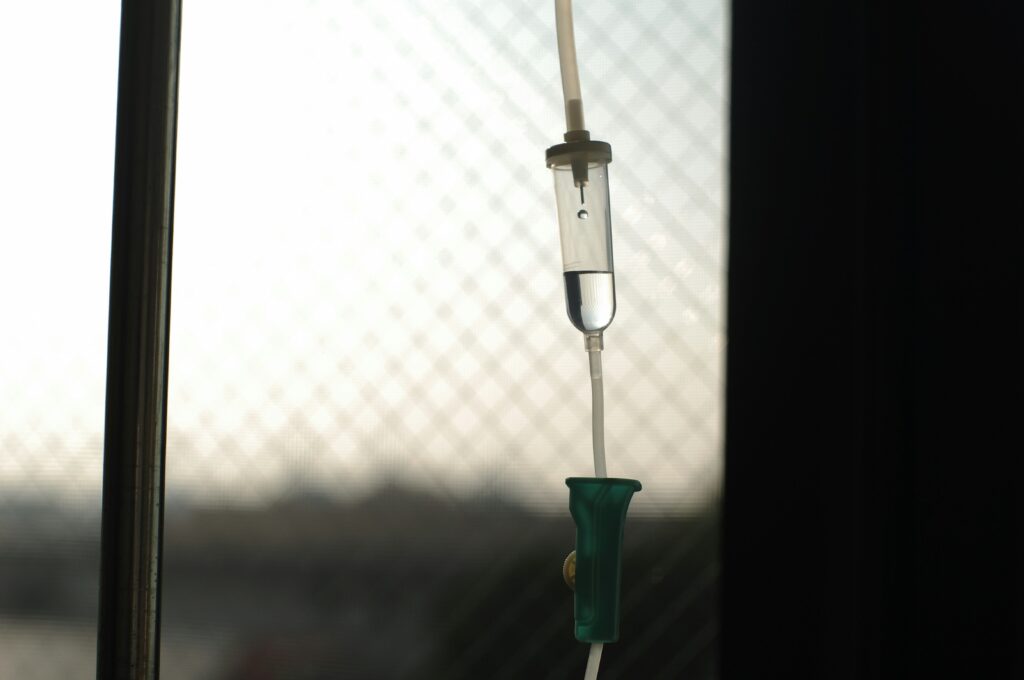Image credit: Hiroshi Tsubono, Unsplash

In results reported today, topline data shows the monoclonal antibody, pemivibart, was highly efficacious in preventing the onset of symptomatic COVID-19 compared to a placebo in the ongoing CANOPY phase 3 clinical trial. Participants who received the monoclonal antibody experienced a 1.9% rate of confirmed symptomatic COVID-19 compared to an 11.9% rate for participants receiving placebo, an 84% relative risk reduction.1
“We are thrilled with the clinically meaningful protection shown by pemivibart in these exploratory analyses during a 180-day period with various SARS-CoV-2 circulating variants,” Mark A. Wingertzahn, senior vice president of Clinical Development and Medical Affairs, Invivyd, said in a statement. “Importantly, given the timeframe in which this study was conducted [XBB and JN1 virus lineages], these CANOPY data suggest that even with a substantial population-level backdrop of immunologic experience with SARS-CoV-2 from either infection or vaccination, additional protection against symptomatic COVID-19 may be available with monoclonal antibodies, including for certain individuals with moderate-to-severe immunocompromise.”1
Pemivibart is a half-life extended investigational monoclonal antibody (mAb). It was engineered from adintrevimab, Invivyd’s investigational mAb. It is a monoclonal injection (4500 mg) for intravenous use.
EUA
Earlier this year, the FDA granted an emergency use authorization (EUA) for pemivibart for the pre-exposure prophylaxis (PrEP) of COVID-19 for both adults and adolescents at least 12 years of age, and weighing at least 40 kg (88.1 lbs) who are immunocompromised.2 The antibody is indicated for those individuals who are unlikely to mount an adequate immune response to COVID-19 vaccination, and recipients of pemivibart should not be currently infected with or have had a known recent exposure to an individual infected with COVID-19.2
What the Data Showed
Invivyd reported data from 2 cohorts of its ongoing CANOPY study. Participants received 2 doses of pemivibart (cohort A and B) or placebo (cohort B) administered via intravenous infusion 3 months apart; safety, serum virus neutralizing antibody (sVNA) titers and clinical endpoints were assessed at pre-specified timepoints over the 180-day period.
In cohort A, there were 298 participants, and cohort B had 317 participants in the pemivibart arm and 160 in the placebo arm. Table 1 and Table 2 offer further data on the individual cohorts.
Based on CANOPY 6-month data cutoff (May21, 2024). Cohort B Modified Full Analysis Set includes all randomized participants without current SARS-CoV-2 infection at baseline as measured by central lab RT-PCR.
Table credit:Invivyd

Safety Profile
According to the investigators, the most common treatment-emergent adverse events (TEAE) In cohort A, were viral infection (7.8%), upper respiratory tract infection (URTI) (7.5%), influenza like illness (4.2%), infusion related reactions (3.6%), and urinary tract infection (3.6%). Anaphylaxis was observed in 4 participants (0.6%) – 2 participants during the first infusion and 2 participants during the second infusion; 2 reactions were life-threatening, and all led to permanent discontinuation of pemivibart. Systemic infusion-related reactions and hypersensitivity reactions were observed within 24 hours of dosing pemivibart in 8.2% and 3.9% of participants after the initial dose and redose, respectively, of this open-label single-arm cohort and were generally mild to moderate in severity.1
For cohort B, the most common TEAEs in the pemivibart arm were URTI (8.2%), viral infection (7.3%), and influenza like illness (5.4%), with similar percentages in the placebo arm. 1
Based on CANOPY 6-month data cutoff (May 21, 2024). Cohort A Full Analysis Set includes all participants who received a full dose of study drug at the initial dosing.
Table credit: Invivyd

“The positive CANOPY clinical efficacy data through 6 months is encouraging and will be helpful to clinicians in making an informed decision about Pemgarda use in their immunocompromised, at-risk patients,” Cameron R. Wolfe, MBBS, MPH, professor of Medicine, Transplant Infectious Disease at Duke University School of Medicine, said in a statement. “The risk of COVID-19 for immunocompromised people remains disproportionate and having a mAb in the toolbox for pre-exposure prophylaxis is extremely beneficial.”1








